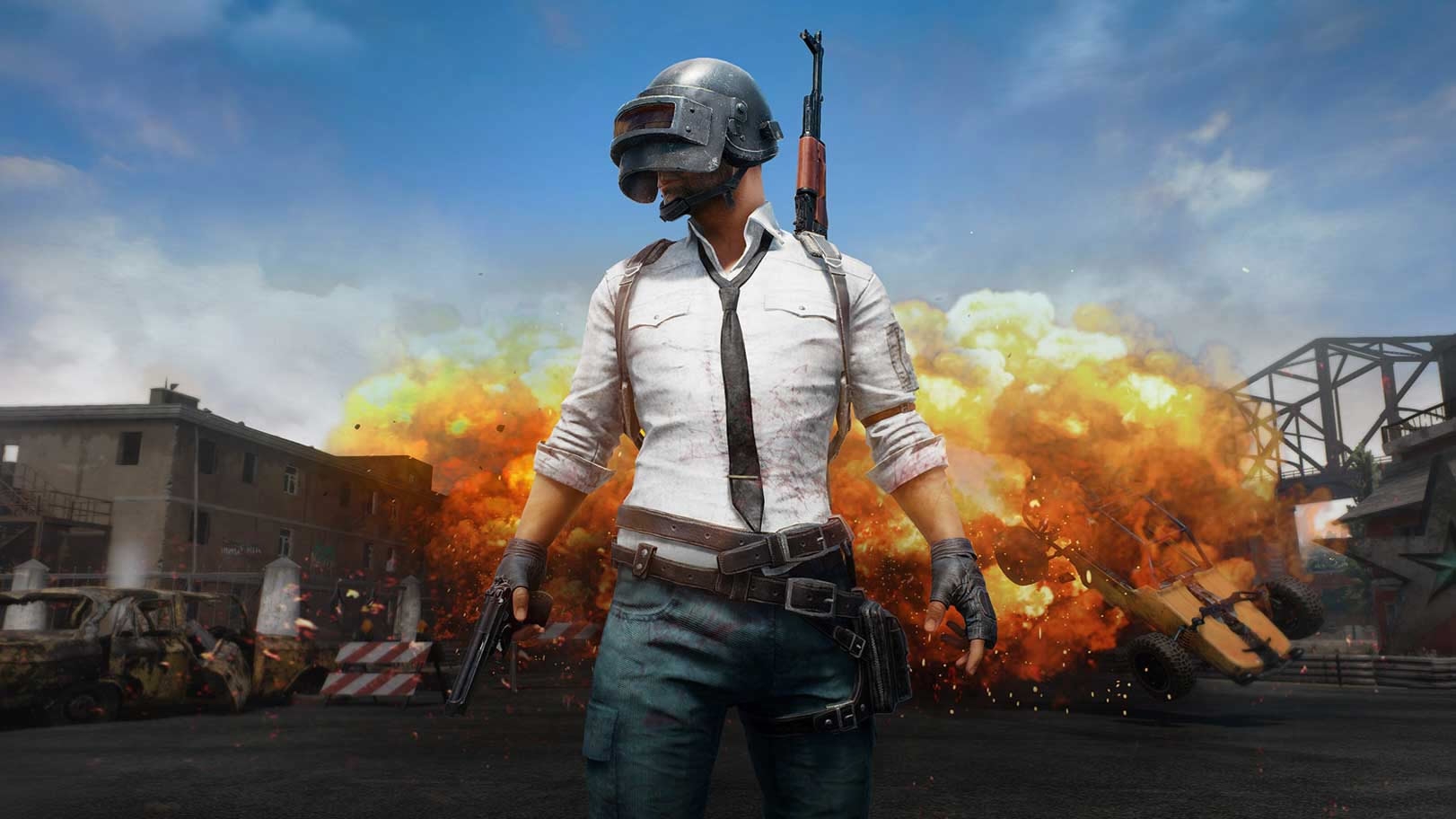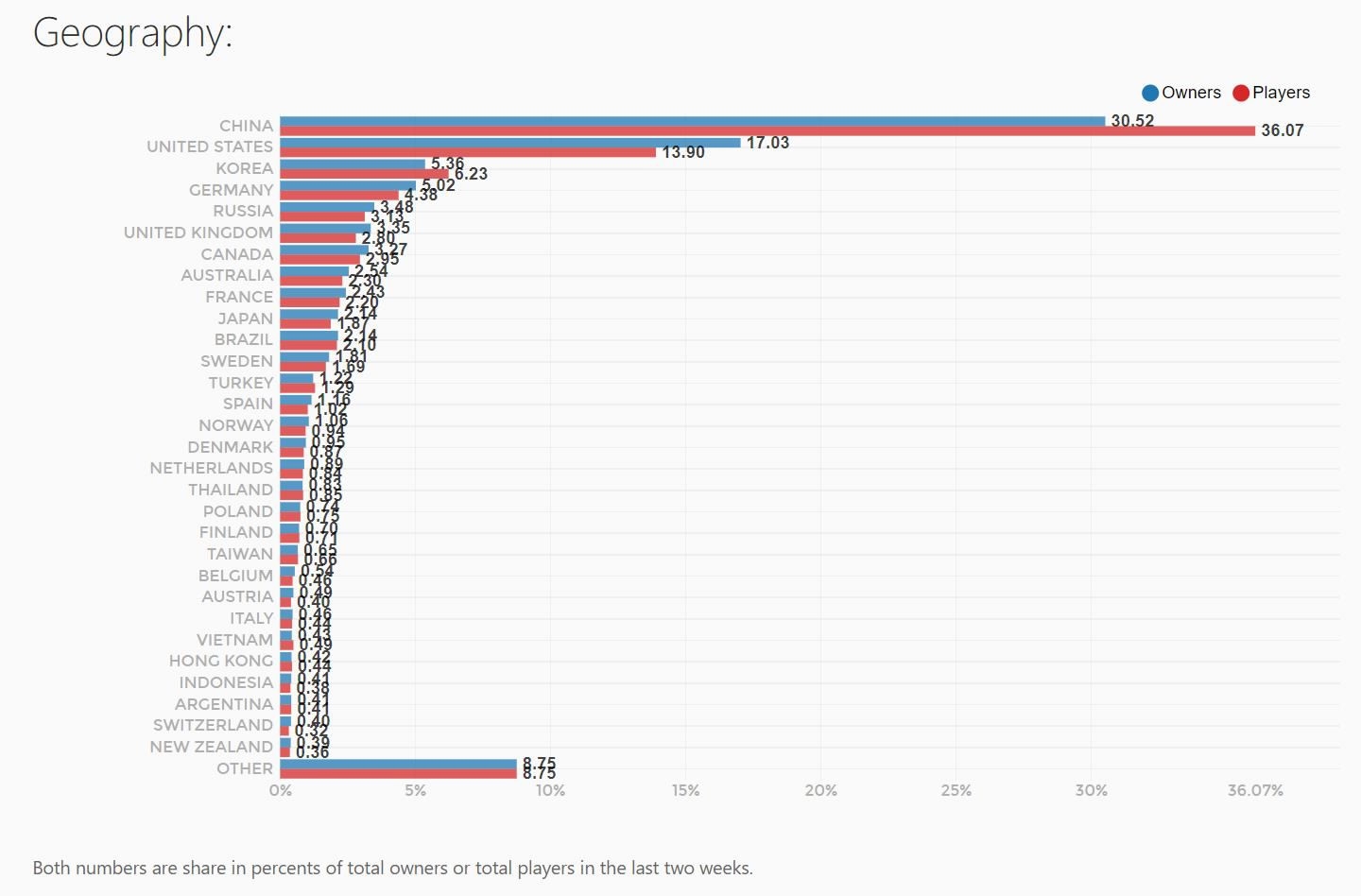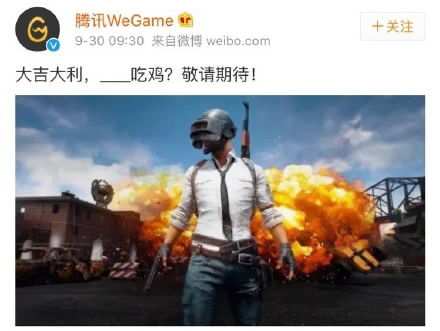
Gaming
18:09, 04-Oct-2017
The Chinese are not only playing the PUBG, but also trying to own it
By Gong Zhe

PlayerUnknown's Battlegrounds, or PUBG, is by far the video game of the year.
The game came out in March as an unfinished product, yet more than 12 million people have bought it for 30 US dollars.
A total of 9.7 million of them played it in the past two weeks, for an average play time of 25 hours, according to data from SteamSpy.
That's definitely a dream start for any game.
Battle Royale
PUBG brings the game genre of "Battle Royale" to a new height.
Inspired by a Japanese film with the same name, the term emerged in around 2012 among game customizers.

Gameplay of PUBG /Screenshot from Steam
Gameplay of PUBG /Screenshot from Steam
In a match of this kind of games, players are thrown into a limited space and fight until the last one standing.
Other games of this type include DayZ and H1Z1: King of the Kill.
Against all odds
Three out of ten PUBG players are Chinese, the SteamSpy data shows. That's about 3.6 million players.
The number of Chinese players for this game is the largest in the world, which is almost the number of US and S. Korean combined.

Geography data shows China has the largest PUBG playerbase. /Screenshot from SteamSpy
Geography data shows China has the largest PUBG playerbase. /Screenshot from SteamSpy
"Chiji" (chicken dinner) is the nickname of PUBG in China because the winner receives a message at the end of a match that reads "winner winer, chicken dinner."
But the game has never been released in the country. There's no server optimized for the Chinese mainland, resulting in a serious delay during the gameplay.
Users have to spend extra money to buy network optimization services to keep the game running smoothly. They usually cost 5 dollars a month.
All players have to buy and play the game through the Steam online store, which was not installed in most Internet cafés in China before PUBG went viral.
With all these disadvantages, the game still got a big Chinese audience.
"I simply can't draw myself out from the game, nor can my teammates. We just play night after night until we can't keep our eyes open," a Chinese game designer nicknamed Denstinon told CGTN.
"The game mechanism was so well-designed. Every match is different, so there's always new thrills waiting for me to discover," he added.
The phenomenon can also be seen through live-streaming platforms. Many webcasters of other games transferred to PUBG in a hope to draw more audiences. Some of them got more than a million daily viewers.
Industrial attentions
Where there are players, there are game companies seeking profit.
Investors in the gaming industry are also looking closely to PUBG.
Among them is Tencent, China's megacorp on Internet and gaming, which is reportedly seeking a 5-percent share in Bluehole, the South Korean company that made the game.
Bluehole denied the deal in August, but its chairman Chang Byung-gyu told Bloomberg in a recent interview that "Tencent can be a very important partner for us."
PUBG's poster appeared on a Weibo post from Tencent's Steam equivalent WeGame last Saturday. But the post was deleted almost instantly.

WeGame's teaser post of PUBG, which was deleted /Screenshot from Weibo
WeGame's teaser post of PUBG, which was deleted /Screenshot from Weibo
Many Chinese players saw it as a sign that the gaming giant is about to run the game in the country.
Mobile version?
Tencent, the owner of another hit video game League of Legends, is reportedly making a mobile version of PUBG.
The company has already made a mobile version of its famous e-sports title League of Legends, which has 160 million active players, according to data company QuestMobile.
The gaming department of Tencent is surveying Chinese players for their opinions of "Chiji" on the phones, asking questions like "how would you like the game to be advertised?" and "which of the following logos do you prefer for the game?"
"I would only ask this kind of questions when my game is market-ready," an anonymous person commented on Chinese tech news site cnBeta.com.

SITEMAP
Copyright © 2018 CGTN. Beijing ICP prepared NO.16065310-3
Copyright © 2018 CGTN. Beijing ICP prepared NO.16065310-3